What Taylor Swift's "Anti-Hero" Has to Do With Your Food Life
Have you heard Taylor Swift's new song, “Anti-Hero?” (If not, go watch her music video first, then come back!)
In this article, I unravel four specific emotional patterns hinted at in this powerful song, all from the perspective of behavioral food therapy. The goal of this exploration is to highlight the tie between our emotional world and choices and offer insight into one of the most common quandaries my clients bring into session: “Why do I do the things I know aren’t good for me?”
A Practice in Naming Internal Experiences
I don't follow Swift closely, but when her new album Midnights dropped, the song “Anti-Hero” caught the attention of many of us in the mental health space. I was drawn to the rawness and relevance of Swift’s lyrics. From both my personal and professional perspectives, words are everything in healing. That’s because when we name and acknowledge our internal experience, we often feel a sense of relief and clarity.
This is the power of “Anti-Hero.” Swift puts words to emotions and vulnerabilities that many of us experience but may not be able to articulate. Although she is a megastar and moves through life very differently than most of us, the inner conflicts she sings about in “Anti-Hero” are universally felt.
If you struggle with your inner world and its reverberation in your food life and find it difficult to be kind and attentive to yourself amidst it all, I encourage you to keep reading. My hope is that a deeper dive into the four specific emotional patterns touched on in “Anti-Hero” helps frame and contextualize your experience while providing new perspective and possibility for healing.
Four Emotional Patterns Driving Your Food Behavior
1. Reckoning with Your Identity
Anti-Hero feels like somebody who is in the midst of a reckoning. In the song, Swift acknowledges the fragmented — or split — aspects of herself with which she's severely uncomfortable but knows she must accept and own since she’s committed to the life she leads. The song hints at themes many of my clients grapple with, such as loneliness, anxiety, depression, narcissism, and fears of abandonment and not belonging. Swift expresses the toll this emotional pain takes on her sense of identity and self-worth.
Midnights become my afternoons
When my depression works the graveyard shift
All of the people I've ghosted stand there in the room
I should not be left to my own devices
They come with prices and vices
I end up in crisis
Many of my clients have experienced the numbing effect of living in a constant state of stress and reactivity or existing on auto pilot, running through the motions in a dissociated haze. They might feel anxious and unsettled, trying to fill the void with food, relationships, work, substances, etc. Eventually, they find themselves reckoning with one part of them that’s drawn to the habitual comfort or numbness and another part that is no longer willing to tolerate the distress these short-term “fixes” cause in their life. Since these parts can feel at odds, our instinct is to criticize and restrain the destructive part. But in behavioral food therapy, we invite this part to the table so we can understand its fears and needs. Eventually, when all parts are acknowledged and in dialogue at the table, the reckoning and conflict becomes integration and healing.
2. Seeking Emotional Safety
As humans, we have a deep primal need to belong and feel emotionally safe in the world and our relationships. If this safety is threatened, our nervous system's stress response kicks in and adapts our behavior to self-regulate and seek out safety. These “adaptive responses” typically fall into five categories: fight, flee, freeze, appease, or collapse.
In behavioral food therapy, I help clients bridge their mental and behavioral health, in part by learning how to track their nervous system states and recognize how those states inform their emotional reactions and food choices. This bridge is essential to emotional healing because it helps us see how our beliefs, emotions, nervous system, and behaviors are in a constant dance. Without this perspective, we get trapped in shame spirals, believing something is wrong with us.
Swift speaks to this shame spiral in the chorus:
It's me, hi, I'm the problem, it's me
She internalizes her insecurities and self-doubt, which devolve into self-blame and self-loathing. Even the title, “Anti-Hero” — the whole premise of the song — suggests we believe the worst about ourselves.
Sound familiar?
3. Experiencing a Dysregulated Nervous System
Disordered food thoughts and behaviors — and more generally, our vices, to use Swift’s terminology — are an adaptive stress response. In other words, they’re symptoms of a dysregulated (or turbulent, out-of-balance) nervous system. Dysregulation often stems from chronically neglecting our needs or living with unresolved developmental trauma and emotional wounds. And this dysregulation can show up years and even decades later.
What causes the chronic neglect or emotional wounds? The connections my clients and I often make in session, some of which Swift alludes to in the song, include childhood or early adult experiences with:
Parents or primary caregivers who had narcissistic traits or other personality disorders
Emotionally immature, cold, or manipulative parents or caregivers
Unpredictable or chaotic households
Enmeshment (read Jeannette McCurdy's “I'm Glad My Mom Died!”)
Bullying, being marginalized, or feeling like you don’t belong
Abuse (verbal, emotional, or physical)
Rigid, authoritarian parenting styles (e.g. “my way or the highway,” low tolerance for different perspectives/ways of being)
Emotional or physical neglect, abandonment, or misattunement
4. Fostering Self-Criticism or Curiosity
Two of my favorite lines in “Anti-Hero” are:
I have this thing where I get older but just never wiser
…
I'll stare directly at the sun, but never in the mirror
I’ll often hear my clients express frustration that they’re treating themselves in a way they know isn’t good for them. As we grow older, we gain more awareness of how our emotional and food patterns play out. But when we can't break the cycle, we feel stuck and deflated. Self-criticism, blame, and shame take over, keeping us trapped in a vicious cycle engaging in harmful patterns. When we’re driven by a fear of abandonment, judgment, or not belonging, these patterns are hard to turn away from because they offer short-term comfort, perceived safety, or an outlet for distraction or offloading overwhelm.
Eventually, the patterns lose their appeal as we see them for what they are — an adaptive response to a dysregulated nervous system — rather than an inherent deficiency. When we can separate ourselves enough to observe the patterns rather than be the patterns, the self-critical part becomes quieter and makes room for more curiosity. With curiosity guiding, I work with my clients to explore:
How their past and present are connected
Why — if they’re no longer in the environment that created these patterns — these adaptive parts still show up or are triggered today
How they can do things differently going forward
Steps Forward
“Anti-Hero” normalizes the human condition by putting words to tough emotional experiences. With words we can validate our feelings, advocate for ourselves, and connect with people or reach out for support.
If you can relate to any of the emotional patterns above, I hope the words in this article help you feel better equipped to take the next step — whether on your own or with support — to name your experience, explore it, allow it to unfold, retrace it back to its origins, and recenter in yourself.
If you’d like support navigating this process, feel free to get in touch and I will provide a compassionate container for you to explore.

